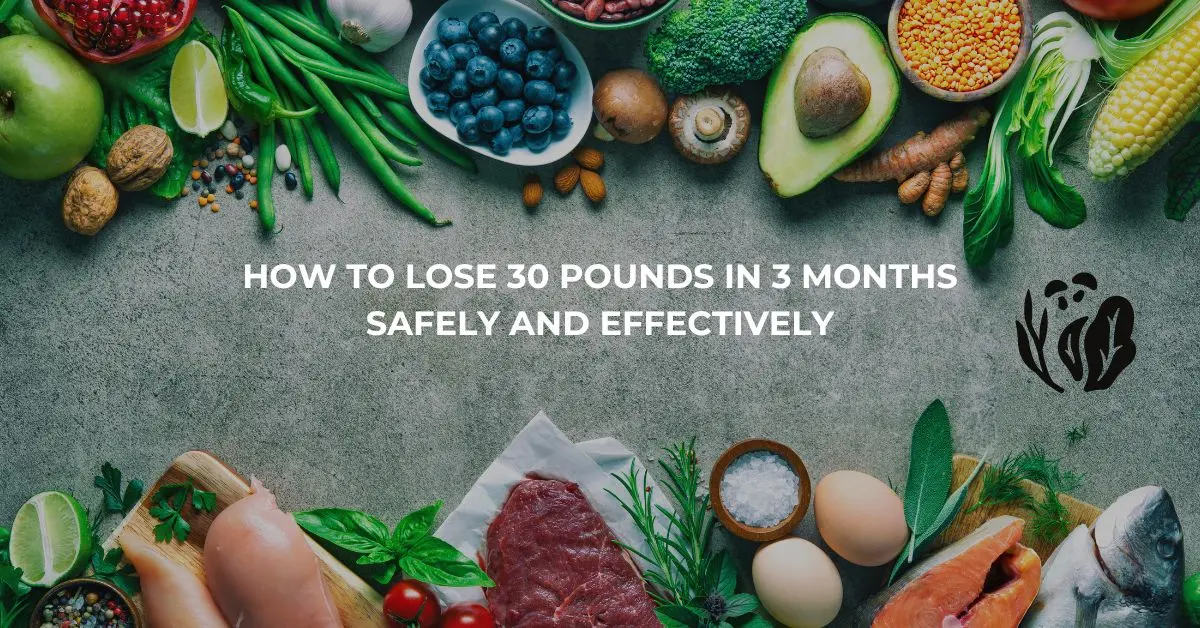Do you often experience sleepy after eating? While it’s a shared experience, have you ever considered if there might be more to it than just feeling tired? Therefore, this article delves into an interesting question: Is Falling Asleep After Eating a Sign of Diabetes? Let’s explore this phenomenon and distinguish between normal sleepiness and potential signs of an underlying health problem.
Understanding Five Reasons For Falling Asleep After Eating
Postprandial somnolence, or the natural tendency to feel sleepy after eating, is a well-observed phenomenon. After a meal, our body diverts energy toward digestion, increasing blood flow to the stomach and intestines.
Consequently, less blood and energy are available for other bodily functions, potentially causing a feeling of tiredness. Here are five reasons behind sleepiness and extreme fatigue after eating:
Blood Flow Redistribution Make You Exhausted After Eating
When you eat, your body directs more blood to your digestive system to help break down and absorb nutrients. Consequently, this redirection of blood away from other parts of the body, including the brain, can lead to a feeling of drowsiness and tired after eating.
Digestion Process Is A Route Cause Of Fatigue After Eating
The process of digestion requires energy. Enzymes play a crucial role in decomposing ingested food through various biochemical processes. Resultantly, these processes are vital to the human digestive system and ensure the proper breakdown of food. This energy-intensive process can lead to a exhausted after eating levels and a desire to rest. (More research available here)
Insulin Release and Blood Sugar Levels
After a meal, your body releases insulin to help transport glucose into cells for energy. Eating lots of carbs, especially sugary ones, can cause your blood sugar to rise quickly and then drop just as fast. Consequently, this rapid drop in blood sugar can lead to fatigue and tiredness after eating. In managing type 1 diabetes, an essential aspect of long-term health is consistently checking your blood sugar.
Neurotransmitters and Amino Acids
Tryptophan, an amino acid found in many protein-rich foods, can contribute to sleepiness. Specifically, tryptophan is a precursor to serotonin, a neurotransmitter that affects mood and sleep.
Consequently, consuming foods high in tryptophan can boost serotonin production and make you feel drowsy after eating.
Parasympathetic Nervous System Activation
Eating triggers the parasympathetic nervous system, also known as the “rest and digest” system. As a result, this activation promotes relaxation and can lead to a feeling of drowsiness.
The Link Between Sleepiness and Blood Sugar Levels
Knowing how blood sugar affects energy levels can explain why feeling sleepy after eating is not a coincidence. Indeed, your body’s intricate dance with glucose regulation plays a significant role in post-meal sleepiness.
Blood Sugar Levels and Energy
“Is falling asleep after eating sugar a sign of diabetes?” is a common question among individuals who experience lethargic after eating or drowsiness after consuming sugary foods. Your body relies on glucose, a sugar derived from carbohydrates, as its primary energy source.
Consequently, maintaining stable blood sugar levels is crucial for your body’s optimal functioning. When you consume food, particularly carbohydrate-rich ones, your blood sugar levels rise. Your body then converts these foods into glucose.
Subsequently, your pancreas produces insulin to help your body absorb glucose into cells. The cells then use this glucose as energy to perform various functions within your body.
Insulin’s Role in Blood Sugar Regulation
Insulin is critical in blood sugar regulation, helping keep levels within a healthy range. As it escorts glucose into cells, blood sugar levels begin to decrease. This is where the connection between insulin, blood sugar, and the state of uncontrollable sleepiness after eating comes into play.
Post-Meal Insulin Surge Make Lethargic After Eating
When you eat a meal high in carbohydrates, your body reacts by producing more insulin to handle the surge of glucose. This surge in insulin can lead to a rapid decrease in blood sugar levels shortly after the meal. Lower blood sugar is essential for balance but can also make you tired after eating.
Energy Diversion Make Drowsy After Eating
When your body uses glucose for energy and keeps blood sugar stable, it has less energy for other functions. This diversion of energy resources to digestion and glucose management can contribute to sleepiness after eating.
Insulin Resistance and Diabetes
For individuals with insulin resistance or diabetes, the relationship between blood sugar and energy becomes even more complex. Specifically, insulin resistance occurs when cells do not respond effectively to insulin, leading to higher blood sugar levels. Consequently, this can result in persistently elevated blood sugar, which may cause fatigue and sleepiness after meals.
Balancing Blood Sugar for Vitality
In managing type 1 diabetes, regularly checking your blood sugar is essential. Moreover, incorporating treatment plans, such as using a continuous glucose monitor (CGM), plays a crucial role in this ongoing process. To effectively manage post-meal sleepiness and maintain steady energy levels, consider incorporating these practices into your routine:
Choose Complex Carbohydrates
Opt for whole grains, vegetables, and fruits with a low glycemic index. These foods release glucose gradually, helping to prevent sudden spikes and crashes in blood sugar.
Combine Macronutrients: Combine carbs with proteins and healthy fats to slow glucose absorption, maintaining stable blood sugar levels.
Portion Control: Be mindful of portion sizes to avoid overloading your body with excessive glucose.
Regular Physical Activity: Regular exercise improves insulin sensitivity, helping your body manage blood sugar more effectively.
Understanding the relationship between insulin, blood sugar, and energy levels can help you make wise decisions. This knowledge can prevent post-meal drowsiness and ensure consistent energy throughout the day.
Problem Areas and Solutions
Consistent Sleepy After Eating
If you find yourself consistently nodding off after meals, it is crucial to address the issue. Furthermore, persistent sleepiness after eating, especially when accompanied by increased thirst, frequent urination, or unexplained weight loss, could signal diabetes.
Consult a Healthcare Professional. If you suspect a link between your sleepiness and diabetes, it is important to see a doctor. They can perform blood sugar tests and assess your overall health to determine if diabetes might be a concern.
Problem: Unhealthy Eating Habits

Consuming meals high in refined carbohydrates and sugars can lead to rapid spikes and crashes in blood sugar levels. This roller-coaster effect may contribute to post-meal fatigue.
Solution: Balanced Diet Opt for balanced meals rich in whole grains, lean proteins, and healthy fats. These choices can help stabilize blood sugar levels and reduce the likelihood of sudden energy drops.
Problem: Sedentary Lifestyle

Not being active can affect how your body handles sugar and energy, which may make you feel more tired after eating.
Solution: Regular Exercise Engaging in regular physical activity helps improve insulin sensitivity and regulate blood sugar levels. Even a short walk after meals can make a significant difference.
The Role of Hormones in Post-Meal Sleepiness
Hormones play a crucial role in how our body manages energy, hunger, and feelings of fatigue, particularly after meals. Several key hormones contribute to post-meal sleepiness, including insulin, ghrelin, leptin, and cortisol.
- Insulin: When you eat, your body releases insulin to help transport glucose into cells, providing them with energy. After a carbohydrate-rich meal, this spike in insulin is accompanied by a drop in blood sugar as glucose moves into cells. The sudden dip in blood sugar levels can trigger fatigue, which is more pronounced in individuals with insulin resistance or diabetes. These individuals may experience post-meal drowsiness more often as their cells are less responsive to insulin.
- Ghrelin and Leptin: Ghrelin is often called the “hunger hormone,” signaling your brain to eat. Leptin, on the other hand, signals when you’re full. After eating, as leptin levels rise, ghrelin drops, causing satiety. While this process keeps your hunger in check, leptin can also promote relaxation, contributing to a sense of fatigue, especially after a large meal.
- Cortisol: High levels of cortisol, a stress hormone, can interfere with digestion and sleep patterns. Cortisol imbalances, especially in individuals with chronic stress, can impact insulin sensitivity, making postprandial fatigue worse. Lower cortisol levels during digestion also activate the parasympathetic nervous system, promoting relaxation and contributing to post-meal tiredness.
Blood Sugar Monitoring Technology
Managing post-meal sleepiness is especially important for individuals with diabetes or insulin resistance. One of the most effective tools for this is Continuous Glucose Monitors (CGMs). These devices provide real-time data on blood sugar fluctuations, allowing people to track how their blood glucose levels react after eating.
- How CGMs Work: A CGM uses a small sensor inserted under the skin to monitor glucose levels continuously. This data is transmitted to a device or smartphone app, alerting users to high or low blood sugar levels in real time.
- Advantages: By using a CGM, individuals can identify patterns of blood sugar spikes and crashes after meals, which may contribute to post-meal fatigue. This allows for timely adjustments to diet or activity levels, minimizing sharp fluctuations in glucose and preventing the resulting tiredness.
- Use in Diabetes Management: CGMs are especially helpful for people with type 1 and type 2 diabetes, who need to maintain consistent blood sugar levels. These devices can help fine-tune insulin doses and meal planning to avoid the postprandial fatigue caused by sharp drops in blood sugar.
By using CGMs and other blood sugar monitoring technologies, people with diabetes can better control their energy levels and minimize the risk of fatigue after eating. This technology is key for ensuring stable energy levels throughout the day, preventing the rapid changes in blood sugar that lead to feelings of drowsiness.
Problem: Inadequate Sleep
Not getting enough sleep can cause tiredness after eating. This can make it difficult to determine if you’re feeling sleepy because of diabetes or simply lack of rest.
Solution: Prioritize Sleep Aim for 7-9 hours of quality sleep each night. Establish a consistent sleep routine and create a comfortable sleep environment to promote better sleep quality.
Conclusion
Feeling tired after eating is normal, but it’s important to distinguish between regular tiredness and potential diabetes symptoms. However, it is important to distinguish between regular tiredness and potential signs of diabetes.
If you worry about falling asleep after eating and diabetes, look for other signs and talk to a doctor. You can ensure your well-being and peace of mind by staying informed and taking proactive steps to maintain a healthy lifestyle.












